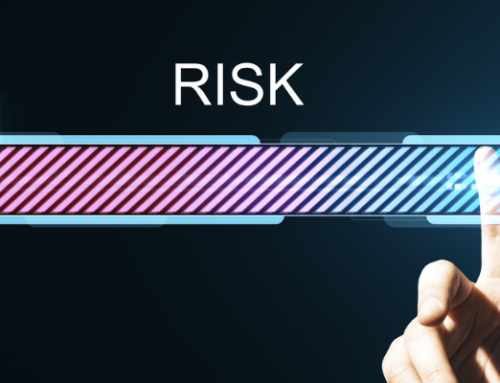By Antonina McAvoy, CISA, CISM, QSA, PCIP and Jennifer French, CPA
The construction industry, often perceived as a field operation-focused sector, is increasingly becoming a prime target for cyberattacks. As the digital transformation accelerates, construction companies must recognize that cybersecurity is critical to their bottom line and business continuity. Read on to discover why the construction sector is particularly vulnerable to cyber threats, the financial and operational impacts these threats can have, and pragmatic steps that business owners and key stakeholders can take to mitigate these risks.
The Vulnerability of the Construction Industry
The construction industry is experiencing a rapid digital evolution, adopting advanced technologies such as Building Information Modeling (BIM), Internet of Things (IoT) devices, and cloud-based project management tools. While these innovations enhance efficiency and productivity, they also expand the attack surface for cybercriminals.
- Diverse and Dispersed Supply Chain: Construction projects often involve numerous subcontractors, suppliers, and other third parties, each with varying levels of cybersecurity maturity. This interconnectedness creates multiple entry points for cyberattacks.
- High-Value Targets: Construction firms handle sensitive data, including financial information, intellectual property, and personal data of employees and clients. Such valuable information makes them lucrative targets for cybercriminals.
- Legacy Systems and Devices: Many construction companies still rely on outdated software and hardware, which are more susceptible to vulnerabilities. Integrating these legacy systems with newer technologies without proper security measures can open the door to cyber threats.
Impact on the Bottom Line and Business Continuity
A successful cyberattack can have devastating consequences for construction firms, affecting both financial health and operational stability.
- Financial Losses: Cyber incidents can lead to direct financial losses through theft, fraud, or ransom payments. Additionally, the cost of responding to and recovering from an attack can be substantial, encompassing forensic investigations, legal fees, and remediation efforts.
- Project Delays and Disruptions: Cyberattacks can halt construction activities by compromising critical systems, disrupting supply chains, or causing loss of data. Such delays can lead to missed deadlines, contractual penalties, and damaged reputations.
- Reputational Damage: Trust is paramount in the construction industry. A breach can erode client confidence, leading to loss of future business opportunities and long-term harm to the company’s reputation.
Prominent Attack Methods
At least 50 active threat groups have targeted the construction industry year to date, with a heavy focus on financial gain from successful ransomware attacks and data breaches. The three most prominent forms of attack methods are:
- Ransomware: Cybercriminals encrypt critical data and demand a ransom for its release. Construction firms, which rely heavily on project timelines and data accessibility, are particularly vulnerable.
- Phishing: Attackers use deceptive emails and messages to trick employees into divulging sensitive information or installing malicious software. Given the diverse workforce and subcontractor networks in construction, phishing attacks are highly effective.
- Social Engineering: Manipulating employees to gain unauthorized access to systems and data. This method preys on human psychology, making it difficult to defend against without proper training and awareness.
Tackling Cybersecurity: Where to Begin
Given the extensive range of cybersecurity challenges, construction companies may feel overwhelmed. However, there are practical steps that business owners and key stakeholders can prioritize to make a significant impact on reducing their cyber risk.
- Conduct a Risk Assessment: Keep tabs on digital risks and threats. Start with a comprehensive risk assessment to identify vulnerabilities and prioritize them based on potential impact. Understanding the specific threats and weaknesses within your organization is the first step toward effective cybersecurity.
- Implement Basic Cyber Hygiene Practices: Ensure that all employees follow fundamental cybersecurity practices, such as using strong passwords, enabling multi-factor authentication (MFA), and regularly updating software. Implement firewalls that are properly configured, antivirus software that is regularly updated, and prioritize email authentication to prevent email spoofing. These basic measures can significantly reduce the risk of common cyber threats.
- Secure the Supply Chain: Work closely with subcontractors and suppliers to ensure they adhere to robust cybersecurity standards. Incorporate cybersecurity clauses in contracts and conduct regular audits to verify compliance.
- Invest in Employee Training: Educate employees about the importance of cybersecurity and how to recognize potential threats, such as phishing emails. Regular training can transform employees from potential vulnerabilities into the first line of defense.
- Backup and Recovery Plans: Implement a reliable data backup and recovery strategy. Regularly back up critical data and test recovery procedures to ensure your business continuity in the event of an attack. Don’t just rely on an outsourced IT provider for your backups – proactively request updates on the frequency of backups configured, notifications for backup failures, and stay on top of Service Level Agreements (SLAs) for timely rerunning your backups and performing backup restore testing.
- Engage with Cybersecurity Experts: Partner with cybersecurity professionals who understand the unique challenges of the construction industry. They can provide tailored solutions, conduct penetration testing, and offer ongoing support to enhance your security posture.
- Invest in Cybersecurity for the Future: Investing in cybersecurity now is an investment in the future of your company. As cyber threats continue to evolve, a proactive approach to security will ensure your construction firm can navigate challenges, protect valuable assets, and sustain growth in an increasingly digital landscape.
Building a Cyber-Resilient Future: Taking Action Now
Cybersecurity is no longer a concern exclusive to the tech industry. Construction firms must recognize the growing cyber threats they face and take proactive steps to safeguard their operations. By prioritizing cybersecurity, construction companies can protect their financial health, maintain business continuity, and preserve their hard-earned reputations. The journey toward robust cybersecurity may be complex, but with strategic planning and the right expertise, the construction industry can build a resilient foundation for the future. Contact our Cyber & Risk Advisory team today to safeguard your construction business with tailored cybersecurity solutions and expert guidance. Taking decisive action now will not only shield your business from immediate threats, but also pave the way for your sustainable business growth and innovation in an increasingly digital world.






